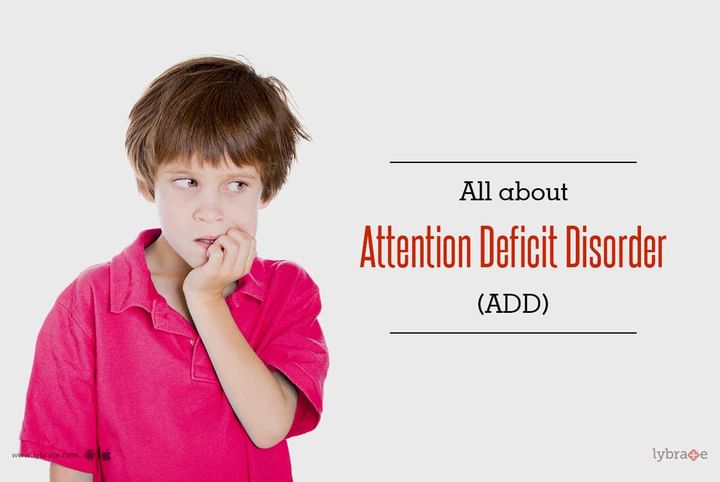Get the App
For Doctors
Login/Sign-up
Last Updated: Jan 10, 2023
BookMark
Report
All About ADD
Attention Deficit Disorder or ADD is a behavioral disorder that comprises impulsive behavior, inattentiveness and hyperactivity. This disorder tends to affect children more commonly, but the symptoms tend to disappear as one ages.
There are a number of symptoms for this disorder:
- Concentration problems: People affected by this disorder have problems in staying focused on routine tasks. You may have problems in listening to conversations, get distracted easily, overlook various important things and have trouble remembering various things.
- Being disorganized and forgetting things: You may exhibit symptoms such as having an extremely cluttered desk. You may also experience difficulties in completing projects and forgetting appointments. You may also lose track of time while doing important things.
- Emotional problems: Various emotional problems such as mood swings, hypersensitivity to criticism, problems in staying motivated and having low self-esteem are common signs of ADD. The disorder may also lead you to be extremely short tempered and be constantly frustrated.
- Hyperactivity: This symptom causes you to remain constantly agitated, unable to focus due to a racing mind, fidgeting constantly and talking excessively.
- Impulsivity: You will exhibit impulsive behavior such as not being able to exercise self-control, blurting out inappropriate comments and have certain addictive tendencies.
Attention Deficit Disorder can cause various problems in your life. Most of these are related to the following domains:
- Work related problems: You may constantly feel a sense of underachievement and will unable to meet your work responsibilities. You may be unable to meet deadlines, and face problems in filing paperwork.
- Relationship problems: This disorder takes a toll on your relationships such as it can create a rift between you and your family. They may feel that you are not sensitive to their concerns.
- Mental health problems: You may face various mental health problems such as drug abuse, anxiety, self-esteem issues and chronic stress.
Remedies for this disorder are:
- Get proper sleep: You should always aim to sleep for at least 6 hours every day. If you are well rested, then you will be more energetic and stress free.
- Regular exercise: You should exercise on a regular basis to keep yourself fit and healthy. It can also help you avoid problems such as obesity.
- Improve your relationships: You should schedule time for your loved ones and engage with them. It may contribute to your overall mental well-being.



+1.svg)
